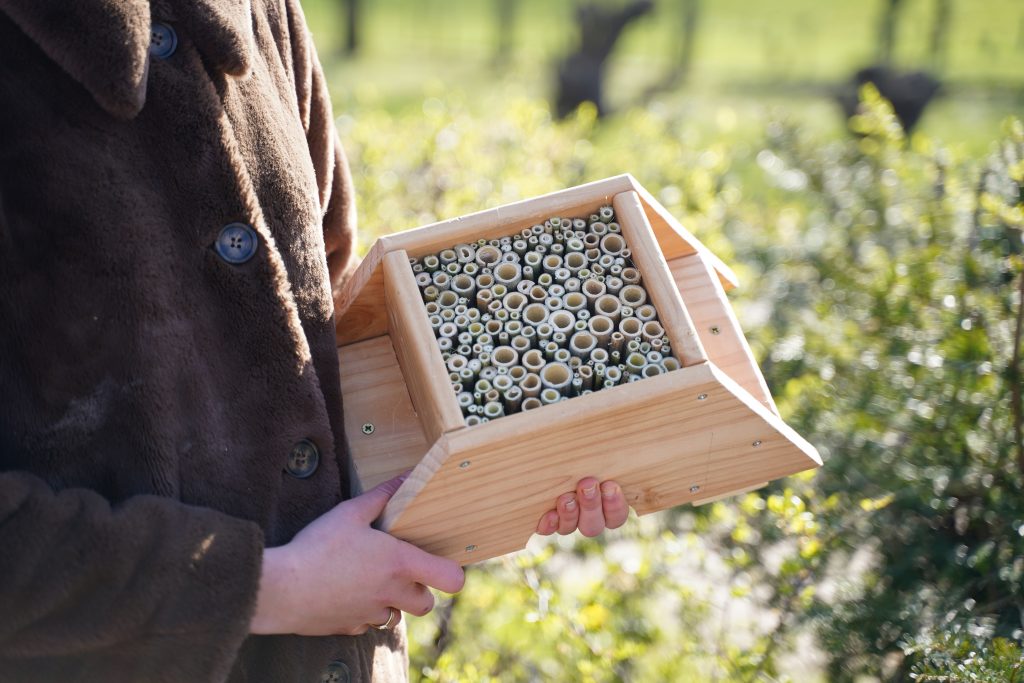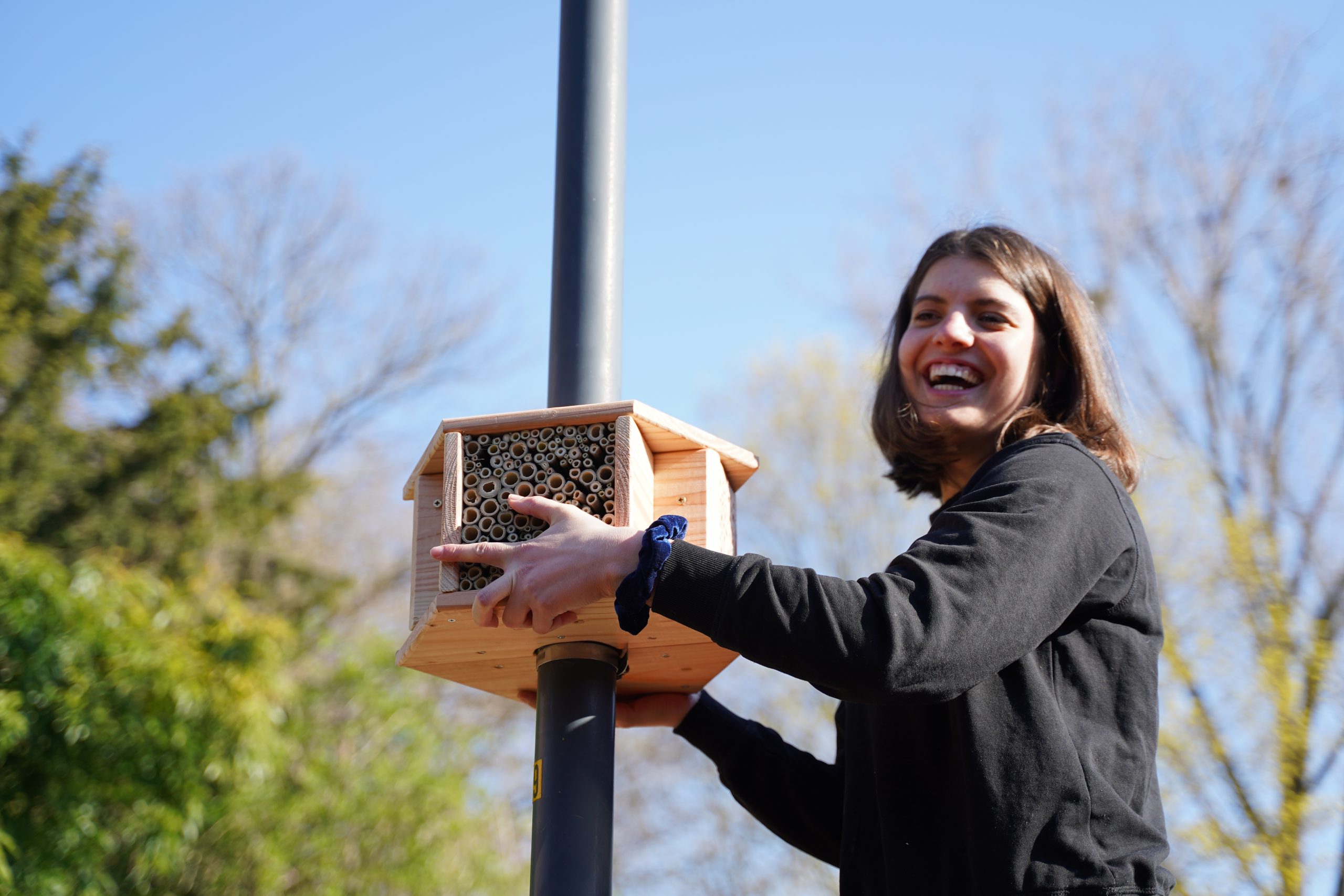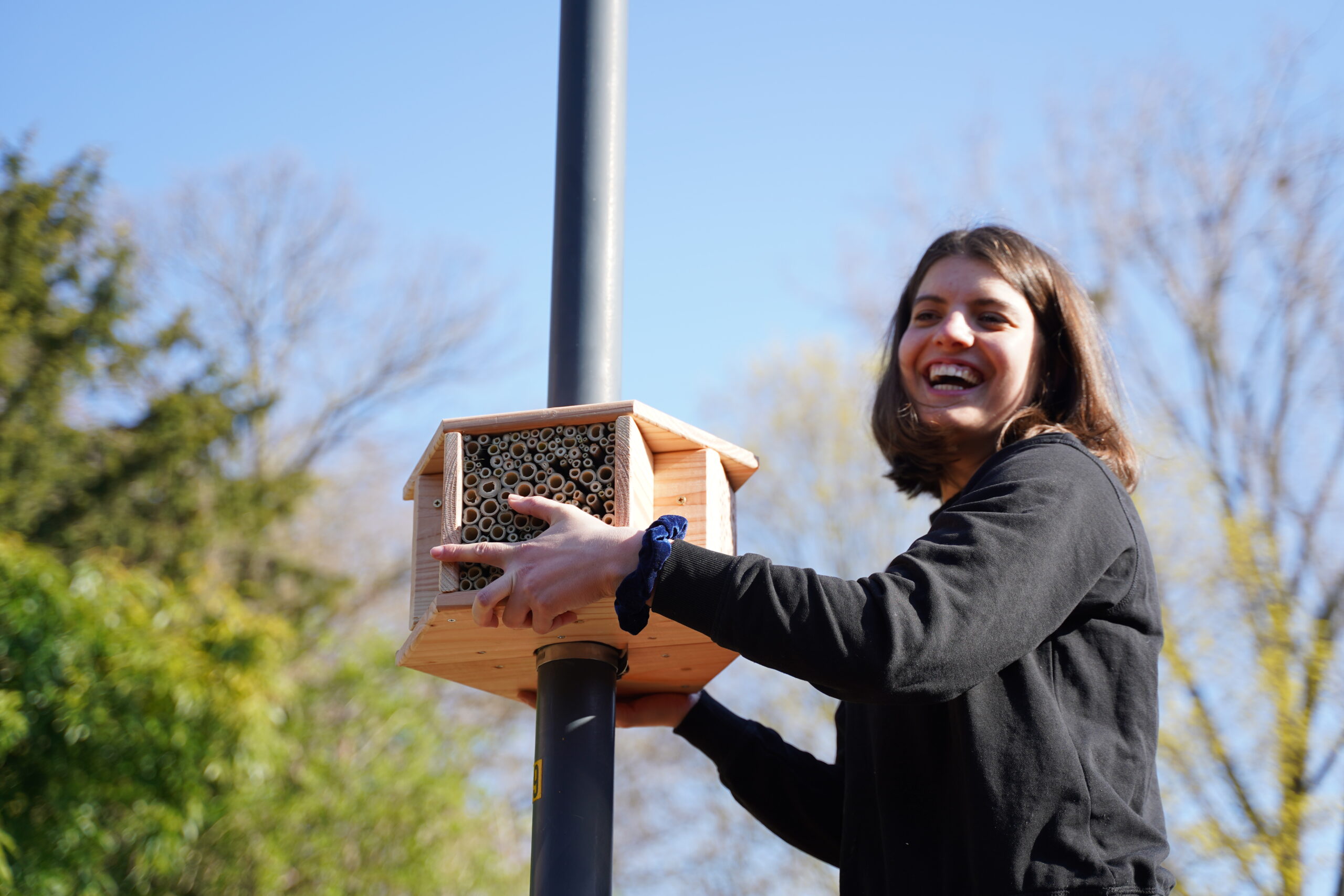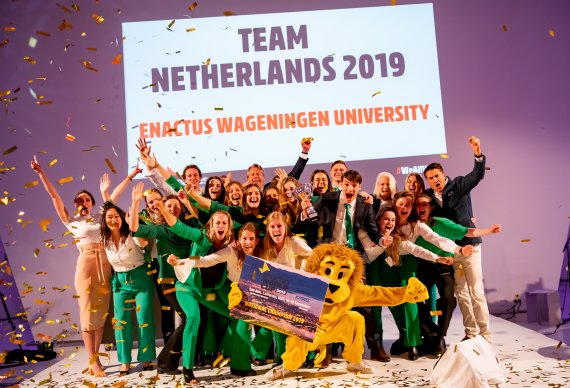Last year, the first Streetlight Bee&bees were hung up in Wageningen. They are now hanging from lampposts in the municipality of Hendrik-Ido-Ambacht (between Dordrecht and Rotterdam), mini-Bee&bees are being sold to consumers, and there are plans for 60 bee hotels in 27 villages in Italy. All in all, the bee startup is outgrowing Enactus.
Enactus is a global student platform for social entrepreneurship whose Wageningen branch was founded in 2017. At Enactus, students can join social entrepreneurship projects or help set one up. Examples of such projects are: Insect Impact, which tries to break the taboo on insect consumption by selling cricket brownies to companies and catering outlets; Uniplastic, where people with limited job prospects recycle plastic into products such as candlesticks and coasters; and Rechtstreeks, which tackles food waste by using fruit that is rejected by the supermarket but is otherwise fine for new products such as jam or cider.
Italian consulate
And then there is BeeGrateful, a project that is so successful that it will become independent of Enactus Wageningen by the end of this year, says MSc student Lisa Beckers (Plant Biotechnology and Biobased Sciences) of BeeGrateful. ‘One of our team members, Stefano Parenti, comes from Italy. He linked up with the managers of a nature reserve near Milan. They are interested in our Streetlight Bee&bees and want to start a biodiversity project together with BeeGrateful.’ Then the Dutch consulate in Italy got in touch to say that they want to support the project.
As a result of these and other successes (BeeGrateful is a finalist in the AtlasInvest Entrepreneurship Grant, for example, competing for a 15,000 euro grant), the bee start-up is outgrowing Enactus Wageningen, Beckers says. ‘And that is precisely the goal of Enactus projects: that you eventually continue under your own steam.’ However, this does not mean that all eight team members will soon have a full-time job with BeeGrateful. ‘At the moment, we do everything on a voluntary basis. In the future, we might work with an hourly rate and if we are really successful, we might be able to offer someone a job, but that’s a long way off still.’
Scientific evaluation
The ten bee hotels in Wageningen have been in place for a year now, but there has not yet been any scientific evaluation. Beckers: ‘We check how they are doing, but there are no precise counts. We do see that the Bee&bees that are closer to vegetation fill up much faster than those surrounded by bricks and concrete. It’s working well, but how well exactly is impossible to say yet.’
To get a better idea of the impact of the insect hotels, the BeeGrateful team is looking into setting up a research project in collaboration with the University of Milan. ‘We want to study and record which bee species are nesting in our Bee&bees and whether populations are growing,’ explains Becker. ‘This biodiversity project with 60 bee hotels would of course be very suitable for that. We are now planning a study of that sort in collaboration with the university. There is also collaboration with a local Enactus branch in Cassino, near Rome. If we can start up a BeeGrateful team there, they can identify the best locations for the Bee&bees and further expand the project to other nature reserves.’ Meanwhile, an ACT project is being set up at WUR to get advice on how BeeGrateful can make the most impact and how best to set up a scientific research project.
Text continues below the photo.

Nesting places
Although the name Bee&bee suggests that these are sleeping places for bees, they are actually intended as nesting places. Becker: ‘Bees lay their eggs in the holes and fill them with pollen. The eggs first become larvae and then, around springtime, they hatch as bees.’ The construction of the Bee&bees ensures that the light from the lamppost does not enter the bamboo holes, so that insects are not bothered by the light.
The maintenance of the hives is the responsibility of the consumer, says Becker. ‘Buyers receive instructions. We try to keep the maintenance as easy as possible. The bamboo sticks, for example, are easy to replace. We are working with design teams to optimize our designs: how to make them easier to hang up; how to minimize the amount of moisture that reaches the bamboo poles through the roof; that sort of thing.’
Prison
The mini-Bee&bees are currently being produced in a sheltered workshop in Barneveld, where the bee hotels are assembled by three people with limited job prospects. ‘They do a good job, but there is little room for upscaling,’ says Beckers. ‘We are now talking to a prison where they do woodwork. If it works out, Bee&bees could be made there on a larger scale starting next year.’

 Lisa Beckers hangs up a Streetlight Bee&bee in Wageningen. Photo Florine Zegers
Lisa Beckers hangs up a Streetlight Bee&bee in Wageningen. Photo Florine Zegers 
